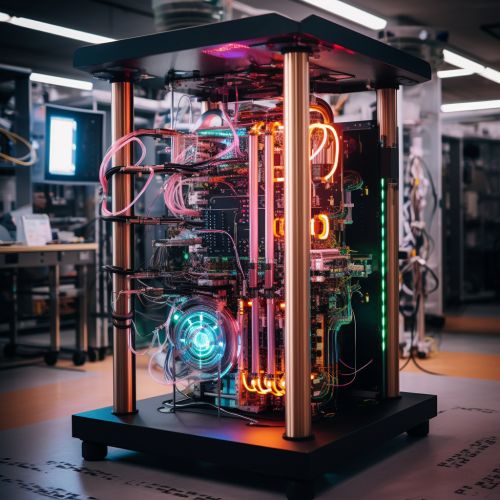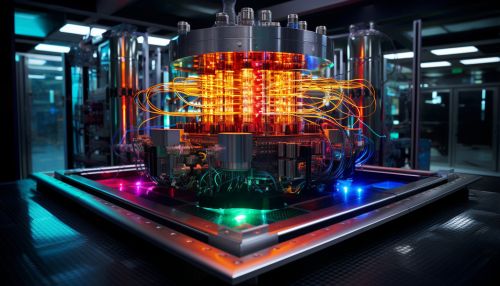Computational Chemistry
Introduction
Computational chemistry is a branch of chemistry that employs computer simulation to assist in solving chemical problems. It uses methods of theoretical chemistry, incorporated into efficient computer programs, to calculate the structures and properties of molecules and solids. Its necessity arises from the fact that apart from relatively recent results concerning the hydrogen molecular ion, the quantum many-body problem cannot be solved analytically, much less in closed form.
Theoretical Background
The theoretical background of computational chemistry can be traced back to the development of quantum mechanics in the early 20th century. Quantum mechanics provides a mathematical framework for understanding and predicting the behavior of particles at the atomic and subatomic level. The Schrodinger equation, which describes the behavior of quantum systems, is one of the fundamental equations used in computational chemistry.


The Schrodinger equation is a differential equation that describes how the quantum state of a quantum system changes with time. It was formulated by Austrian physicist Erwin Schrödinger in 1926. The equation is used in computational chemistry to calculate the energy levels of atoms and molecules and to predict the outcome of chemical reactions.
Methods
Computational chemistry methods range from highly accurate to very fast methods. The former category includes methods such as Full CI, which yield results that approach complete accuracy as the size of the system increases. The latter category includes methods such as Density Functional Theory (DFT), which can be applied to systems with thousands of electrons, but with a less accurate result.
Ab Initio Methods
Ab initio methods are based on quantum mechanics and do not involve any empirical or semi-empirical approximations. They are derived from first principles, or 'from the beginning'. These methods are highly accurate, but they require significant computational resources.
Semi-Empirical and Empirical Methods
Semi-empirical and empirical methods involve approximations and parameters derived from experimental data. These methods are less accurate than ab initio methods, but they are also less computationally intensive. They are often used for larger systems where ab initio methods would be too computationally expensive.
Molecular Mechanics
Molecular mechanics applies classical mechanics to model molecular systems. The potential energy of all systems is approximated as a function of the nuclear coordinates using parameterized functional forms. This method is widely used in the study of larger molecules such as polymers and proteins.
Applications
Computational chemistry has a wide range of applications in various fields. It is used in the design of new drugs and materials, the study of chemical reactions, the prediction of the properties of molecules, and many other areas.
Drug Design
In drug design, computational chemistry is used to model biological systems and to predict the behavior of potential drugs. This can help to identify promising drug candidates and to optimize their properties before they are synthesized in the lab.
Material Science
In material science, computational chemistry is used to predict the properties of new materials before they are synthesized. This can help to identify materials with desirable properties for specific applications.
Environmental Chemistry
In environmental chemistry, computational chemistry is used to understand the behavior of pollutants and to predict their impact on the environment. This can help to develop strategies for pollution control and remediation.
Future Directions
The field of computational chemistry is continually evolving, with new methods and applications being developed. One of the key future directions is the integration of computational chemistry with machine learning and artificial intelligence. This could potentially lead to the development of new, more efficient algorithms for solving complex chemical problems.
Another future direction is the development of quantum computing for computational chemistry. Quantum computers have the potential to solve certain types of problems much more efficiently than classical computers. This could revolutionize the field of computational chemistry and enable the study of much larger and more complex systems.
